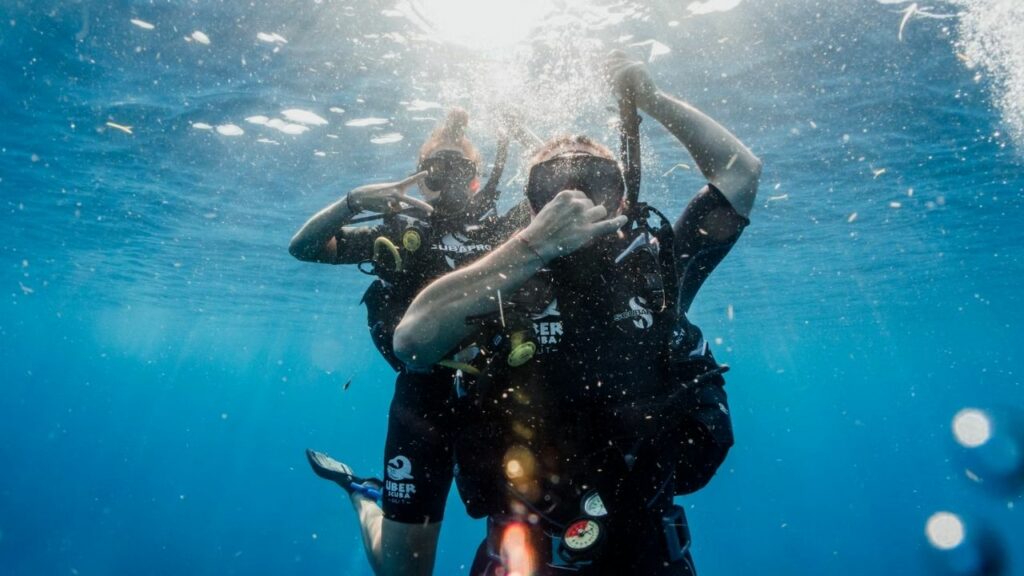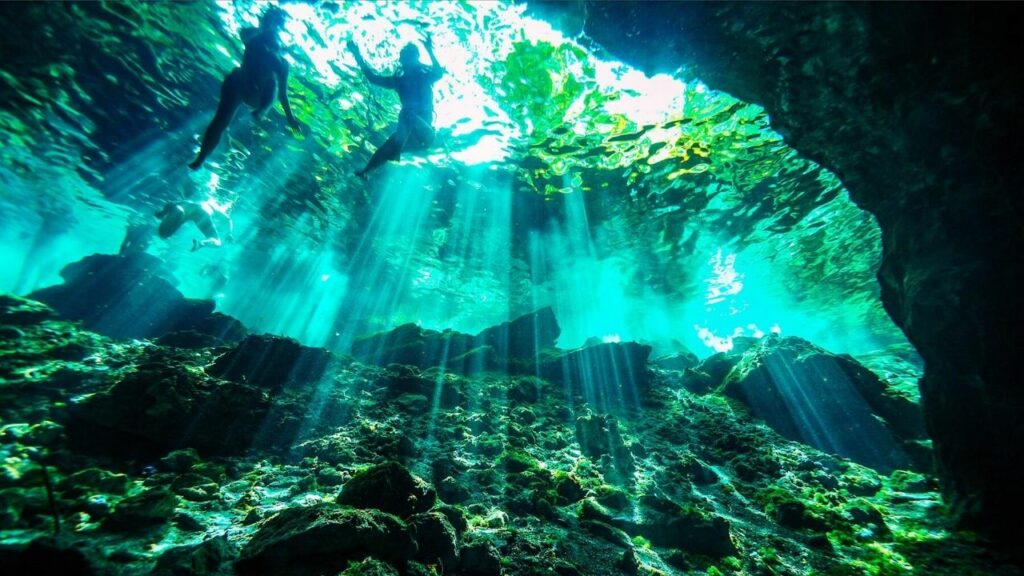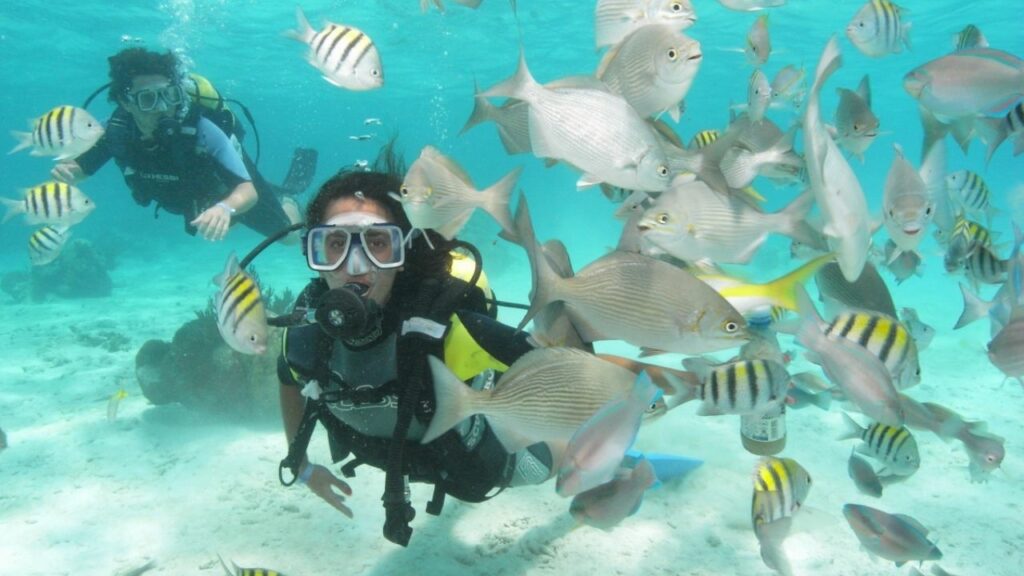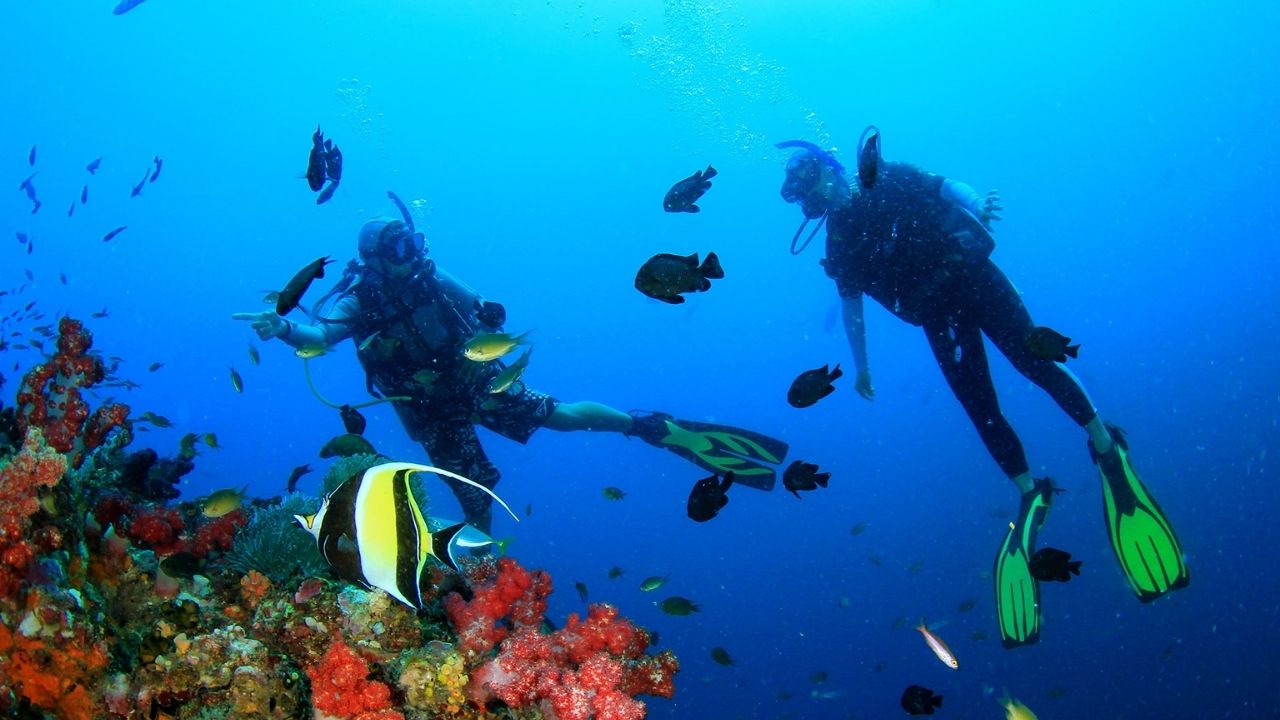The authentic experience of swimming deep underwater in some of the most beautiful panoramic views is honestly ineffable. Scuba diving is a great activity that everyone should experience at least once.
That said, it isn’t exactly a walk in the park. It is an extreme sport, after all. Diving takes considerable stress on your body, so you better be prepared before you go diving.
The simple change in the pressure from atmospheric pressure to underwater pressure can lead to barotrauma which is particularly dangerous for the unhealthy. Barotrauma literally translates to pressure-related injury, and it mainly affects the ears and lungs of divers.
Although, you shouldn’t worry. You’ll soon know about the common pressure injuries from scuba diving and how they can be avoided through this quick guide. Let’s talk about the causes first.
Pressure injuries and disorders in scuba diving can be categorized into three primary issues. The most common is barotrauma (pressure injury). The second biggest reason is an excessive build-up of external gases (nitrogen and oxygen), and the third is physical injuries.
1. Pulmonary Barotrauma (Exploding Lungs)
There are two types of barotrauma that are arguable the most common problems in scuba diving – pulmonary barotrauma and ear barotrauma.
Pulmonary Barotrauma is more commonly referred to as the “exploding lungs.” But the situation is never as apparent as the name suggests. This barotrauma occurs at a microscopic level causing the air to fill between tiny pores of the lungs (alveioli). When you ascend back, the pressure changes again, and the air tries to escape.
With no alternate path, the air escapes by “exploding” or making halls in the tiny air sacs on the diver’s lungs. And since these lung sacs are so tiny and thin, pulmonary barotrauma can happen even at a small change in pressure.
The best way to avoid such barotrauma is to ascend slowly and properly without rushing. And whatever you do, don’t hold your breath. Finally, make sure you’re screened for any lung conditions often and preferably before your next scuba tip.
2. Ear Barotrauma
Ear Barotrauma is the most common pressure scuba diving injury among beginners and enthusiasts. It is a tissue injury that happens due to the massive (and sudden) difference between the body’s internal pressure and its ambient pressure.
It’s often accompanied by ear pain, dizziness (in some cases, Vertigo), decreased hearing, and an annoying sense of having water in the ear.
Ear Barotrauma occurs because of failure in equalizing pressure difference among many layers of the ear (mostly middle ear). The stabilization failure creates a pressure difference on the eardrum and makes it swell up. If it continues, it’ll try swelling up against the middle ear walls and lead to bleeding or ear rupture.

You should also discontinue diving at the slightest hint of ear barotrauma and contact your primary care provider. Your ears and ability to hear aren’t the things you would wanna mess with.
3. Decompression Sickness
Decompression Illness or Decompression Sickness is the direct opposite of barotrauma. Barotrauma is caused by the increasing pressure as you dive down, but decompression sickness, as the name suggests, happens if you ascend too quickly without giving your body enough time to adjust.
According to medical professionals, this phenomenon can be subdivided into two:
Decompression Sickness: Also known as the “bends,” it happens due to the presence of inert gases like Nitrogen in our body. You’re constantly breathing in NItrogen as you dive down (increasing pressure).
After a successful dive, if you go back to the surface at a reasonable pace, the Nitrogen will leave your lungs harmlessly. But if you move too fast, causing rapid decompression, Nitrogen will form bubbles and cause internal damage to your organs. This can potentially lead to further complications.
Arterial Gas Embolism: AGE is the unfortunate byproduct of Decompression sickness. The Nitrogen bubbles roam in the body through ruptured pulmonary vessels. These bubbles can distribute throughout the heart and brain, disrupting the circulation of blood and damaging outer shell walls.
4. Oxygen Toxicity
Oxygen Toxicity is the prime example of when having too much something good is actually bad for you. It’s lung damage when the body inhales/intakes too much supplemental oxygen from the tank.
The lung damage can cause coughing and troubled breathing, which is pretty dangerous for older. Oxygen toxicity can also cause seizures in your body if the pressure and blood levels in the body are high enough. Although, this won’t be a problem for you guys as the depth levels for recreational scuba diving aren’t deep enough to reach the amount of troubled pressure.
5. Nitrogen Narcosis
Similar to Oxygen Toxicity, Nitrogen Narcosis is another condition of internal damage caused by increased blood Nitrogen levels. Nitrogen Narcosis is super dangerous because it’s caused by diving deep underwater and directly affects the brain.
With Nitrogen Narcosis narcosis, you can transition into an alcoholic. People have thrown away stuff and even back pain under Nitrogen Narcosis. The caveat is that it won’t occur in recreational diving heights as the pressure difference could be too small.

6. Immersion Pulmonary Edema (IPE)
Immersion (induced) Pulmonary Edema (IPE) happens when diving in colder waters. It’s a condition when water (or other fluid) fills within your lungs. It’s usually caused by the changing pressure that puts considerable pressure onto the pulmonary capillary bed and allows the liquid to reach the lungs.
Some symptoms include mild to severe chest pains, difficulty breathing, frothy sputum, and productive cough. If any of these symptoms gradually increase as you dive deeper, seek medical advice immediately.
7. Drowning & Physical Injuries
Physical injuries might not be as common in scuba diving compared to internal conditions. Nonetheless, they do occur when proper safety measures and guidelines aren’t followed.
These physical injuries often cause further harm due to the lack of control and isolated environment underwater. Incapacitation is particularly a big issue since it can lead to drowning.
8. Dangerous Fauna
Another big issue regarding physical injuries is the underwater fauna. As much as you love to dive with Tiger sharks and Manta rays, waters have venomous sea snakes or poisonous jellyfishes too.
Although most marine life isn’t aggressive and wouldn’t attack you without cause, even the sea snakes. It’s still a better idea to keep a distance and protect yourself.
You shouldn’t touch, play with, or step on (accidentally or not) an animal you’re not familiar with. Many aquatic species are venomous for defensive purposes. You should be well-versed in first-aid and understand the aquatic fauna in the region.
If you get infected, the first step is to remove the weapon underneath your skin (spine or stingers) that may be venomous. Next, put the wounded area in 110 – 113 F hot water and finally seek advice from a professional healthcare provider.
How to avoid scuba diving injuries: before, during, and after?
1. Before
- Diving is a strenuous activity that requires a valid certificate and concentration. Make sure you’re done with your classes and well-rested.
- Don’t dive without ensuring the protective gear is locked and in place. Take diving classes if need be.
- Clear out your ears to prevent any damage or even mild pain.
- Learn how to use the underwater tablet and computer properly to control your ascent rate and descent moderately.

2. During
- Don’t dive too aggressively as a recreational diver. Take other factors such as ascent rate and descent into account and scuba dive safely.
- Don’t be too aggressive or forceful with the aquatic fauna.
3. After
- Don’t go skydiving (or flying) after the first 24 hours of your last scuba dive to avoid decompression sickness.
- Don’t drink or go hiking / trekking / mountaineering after the scuba dive.
- Stay away from massages right after your last scuba dive as it can increase the chances of Nitrogen Narcosis.
At what age should you stop scuba diving?
There is no “maximum age” for scuba diving or age when you should stop diving. You can dive even if you’re in your 70s or older! Scuba diving only requires you to be healthy and confident without age discrimination. The baseline of being physically fit is the same for young and older people.
People above the age of 50 come in the category of “older divers.” They do need to take extra precautions because of comparatively weaker bodies (in most cases). But there’s no issue in scuba diving at an older age. On the contrary, most diving instructors would encourage it because it has a few benefits and is super fun.
Does scuba diving take years off your life?
You haven’t been diving long enough if no one has ever told you to stop scuba diving, or else your lifespan will be reduced. Good thing that isn’t true.
Scuba diving doesn’t take years off your life. If that were true, there wouldn’t be divers with over 30 to 40 years of scuba experience. Excessive exposure to nitrogen gas and bone necrosis are indeed problems faced by divers, but neither will reduce your lifespan.
That’s it for scuba diving injuries and disorders. Follow these tips and rules to stay safe and make the most out of your next scuba adventure.

